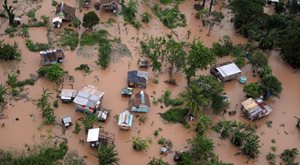Authority, MCC asked to clarify contributions
The National aka The Loggers Times
THE government, through the Mineral Resource Authority and Ramu NiCo mine, need to clarify the services they will provide in the impacted areas.
A source from the Ramu Nico management said some of the benefits accommodated in the mining review were still unclear on specific responsibilities they had.
Mindre village is about 1km from the refinery facility at Basamuk and is next to the mine-constructed powerlines but is still without electricity.
The source said it was stated in the agreement that the company was responsible to put power supply into the village but the government, through MRA, should be involved to assist with the service lines and its installation by its partner PNG Power Ltd.
He said PNG Power Ltd had regulations to install power in certain buildings.
“Most of the village houses are bush material houses, we need to comply with PNG Power regulations,” the source said.
He said MRA and the developer were still working on the issue.
Villagers claimed they were not effectively benefiting from the health services provided in their areas.
The Ganglau Aid post, near Basamuk, serves villagers around the refinery but not on an up-to-date basis.
Wass Sakor, from the Jangag village, said last Sunday that one community health worker who was supposed to be serving them at the aid post,was employed by the mine and went to work at the refinery.
“If he’s not there, we wait, one of his assistants at the aid post is old and we are concerned that he might not read the medicine labels well and give us the wrong treatments,” Sakor said.



